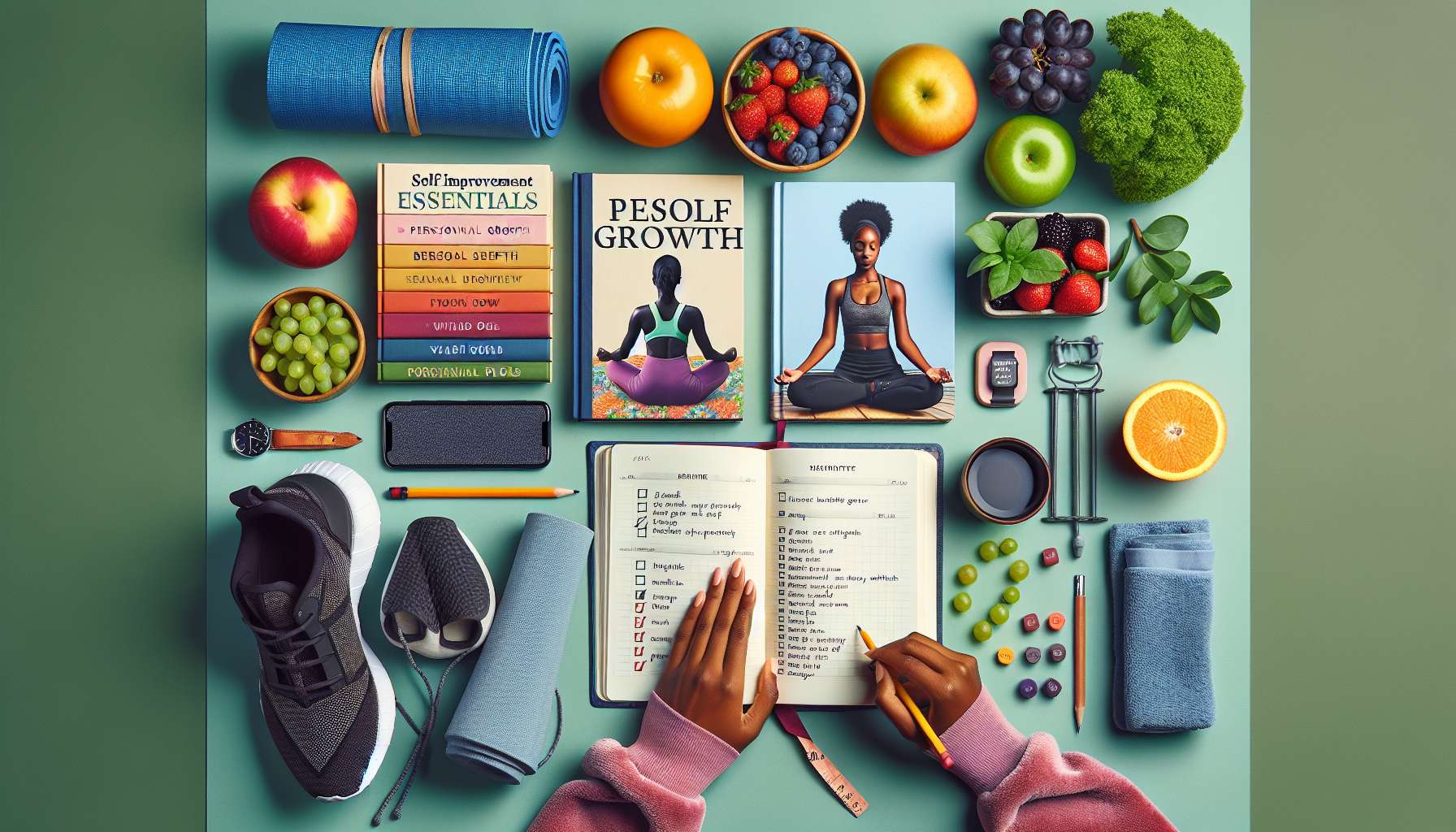Self-Improvement Essentials: A Comprehensive Guide
Self-improvement is a journey of personal growth and development that encompasses various aspects of our lives, from physical and mental well-being to professional success and relationships. It involves a conscious effort to enhance one’s skills, knowledge, and overall quality of life. In today’s fast-paced and competitive world, the quest for self-improvement has become more relevant than ever. But what are the essential elements that contribute to effective self-improvement? This article aims to explore the key essentials of self-improvement, providing valuable insights and practical tips for individuals seeking to embark on this transformative journey.
The Power of Goal Setting
Setting clear and achievable goals is the foundation of any self-improvement journey. Goals give us direction, motivation, and a sense of purpose. When setting goals, it’s essential to make them specific, measurable, attainable, relevant, and time-bound (SMART). By breaking down larger goals into smaller milestones, we can track our progress and stay motivated. For example, if your goal is to improve your physical fitness, you can set a target of running a certain distance within a specified time frame. By setting actionable goals, you create a roadmap for success and hold yourself accountable for your progress.
The Importance of Self-Reflection
Self-reflection involves taking the time to introspect and evaluate your thoughts, feelings, and actions. It allows you to gain insight into your strengths, weaknesses, values, and beliefs. Through self-reflection, you can identify areas for improvement, set priorities, and make informed decisions. Journaling, meditation, and mindfulness practices are effective tools for cultivating self-awareness and understanding your inner self. By developing a habit of self-reflection, you can make conscious choices that align with your goals and values, leading to personal growth and fulfillment.
Cultivating a Growth Mindset
A growth mindset is the belief that our abilities and intelligence can be developed through effort and perseverance. People with a growth mindset see challenges as opportunities for growth, embrace feedback as a learning tool, and view failure as a stepping stone to success. By cultivating a growth mindset, you can overcome obstacles, adapt to change, and continuously improve yourself. To develop a growth mindset, challenge your fixed beliefs, learn from setbacks, and focus on the process rather than the outcome. By adopting a growth mindset, you can unlock your full potential and achieve greater success in all areas of your life.
Building Resilience and Emotional Intelligence
Resilience is the ability to bounce back from adversity, cope with stress, and adapt to challenging situations. It involves developing a positive outlook, problem-solving skills, and effective coping strategies. By building resilience, you can navigate life’s ups and downs with grace and fortitude. Emotional intelligence, on the other hand, is the ability to recognize, understand, and manage your emotions and those of others. It involves empathy, self-awareness, social skills, and emotional regulation. By enhancing your emotional intelligence, you can improve your relationships, communication, and decision-making skills. Both resilience and emotional intelligence are essential qualities for personal and professional success.
Continuous Learning and Personal Growth
Learning is a lifelong journey that enriches our minds, expands our horizons, and keeps us curious and engaged. Whether through formal education, self-study, or experiential learning, continuous learning is vital for personal growth and development. By acquiring new knowledge, skills, and perspectives, you can stay relevant in a rapidly changing world and unlock new opportunities for advancement. Personal growth involves challenging yourself, stepping out of your comfort zone, and embracing new experiences. It requires a willingness to learn, adapt, and evolve as a person. By prioritizing continuous learning and personal growth, you can become the best version of yourself and lead a fulfilling and meaningful life.
Practicing Self-Care and Mindfulness
Self-care is the practice of taking care of your physical, emotional, and mental well-being. It involves setting boundaries, prioritizing your needs, and practicing self-compassion. Self-care activities can include exercise, healthy eating, adequate sleep, relaxation techniques, and hobbies that bring you joy. By practicing self-care, you can recharge your batteries, reduce stress, and improve your overall quality of life. Mindfulness is the practice of being fully present in the moment, without judgment or attachment. It involves tuning into your thoughts, feelings, and sensations with awareness and acceptance. Mindfulness practices such as meditation, deep breathing, and yoga can help reduce anxiety, improve concentration, and cultivate inner peace. By integrating self-care and mindfulness into your daily routine, you can nurture your well-being and enhance your self-improvement journey.
Setting Boundaries and Prioritizing Self-Development
Setting boundaries is essential for protecting your time, energy, and resources. It involves saying no to activities, relationships, or commitments that don’t align with your values or goals. By setting boundaries, you establish healthy limits and protect your well-being. Prioritizing self-development means making yourself a priority and investing in your growth and happiness. It involves carving out time for self-improvement activities, such as reading, learning, exercising, or pursuing hobbies. By prioritizing self-development, you show yourself the respect and care you deserve, leading to personal fulfillment and success.
Expert Opinions
According to renowned psychologist Carol Dweck, author of “Mindset: The New Psychology of Success,” having a growth mindset is essential for achieving your full potential. Dweck argues that people with a growth mindset are more likely to embrace challenges, persist in the face of setbacks, and achieve higher levels of success compared to those with a fixed mindset.
Similarly, author and motivational speaker Tony Robbins emphasizes the importance of setting clear goals and taking massive action to achieve them. Robbins believes that success is the result of consistent effort, determination, and a commitment to lifelong learning and growth.
Conclusion
In conclusion, self-improvement is a multifaceted journey that requires dedication, self-awareness, and a growth mindset. By setting clear goals, practicing self-reflection, cultivating resilience and emotional intelligence, prioritizing continuous learning and personal growth, and embracing self-care and mindfulness, you can become the best version of yourself and lead a fulfilling and meaningful life. Remember that self-improvement is a lifelong process, and every small step you take towards personal growth matters. So, take the first step today and embark on your transformative journey towards self-improvement.
To wrap things up, self-improvement is not just about becoming better; it’s about becoming the person you aspire to be. So, embrace the journey, believe in your potential, and never stop growing and evolving. The power to change lies within you.




